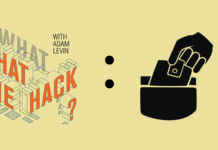 As Hillary Clinton and Donald Trump ramp up their campaigning efforts in the last weeks of this year’s presidential election, robocalls have increased significantly. And not just the legitimate ones. Scammers also have upped their efforts in hopes of gaming the politically fervent and gullible.
As Hillary Clinton and Donald Trump ramp up their campaigning efforts in the last weeks of this year’s presidential election, robocalls have increased significantly. And not just the legitimate ones. Scammers also have upped their efforts in hopes of gaming the politically fervent and gullible.
A recent review of political robocalls tied to the 2016 presidential election found that legitimate calls from the Trump and Clinton campaigns have increased by 64% since the beginning of the year, jumping 20% from July to September. At the same time, political scam calls have increased nearly 10 times that amount, up 614% since the beginning of the year.
These findings by Hiya, a company providing caller ID products and services, also showed that total Trump campaign calls to potential voters outpaced Clinton by 388%. The majority of legitimate calls from both campaigns originated from phone numbers in the Washington, D.C., and New York metro areas. Scam calls for Trump and Clinton, however, originated primarily from the following area codes.
- 213 (Los Angeles)
- 803 (Columbia, South Carolina)
- 312 (Chicago)
- 281 (Houston)
- 212 (New York)
However, the review found that legitimate calls for the candidates originated in the following areas.
Top 5 Clinton Area Codes (where calls originate)
- 202 (Washington, D.C.)
- 646 (New York)
- 215 (Philadelphia)
- 315 (Syracuse, New York)
- 561 (Palm Beach County, Florida)
Top 5 Trump Area Codes (where calls originate)
- 202 (Washington, D.C.)
- 646 (New York)
- 315 (Syracuse, New York)
- 585 (Rochester, New York)
- 310 (Los Angeles)
Acc
ording to Hiya’s research, which was conducted online by Harris Poll from Sept. 28-30 among 2,007 adults, most of the scam calls fall into the following three categories.
1. Re-register or Voter Verification
In an attempt to gain access to personal information such as emails, addresses and Social Security numbers, scammers pretend to re-register voters or verify their voter registration information.
2. Campaign Donations
While political campaigns can and will legally seek donations by phone, you may not want to donate directly over the phone without doing your due diligence to confirm the organization.
3. Election Surveys
Offering incentives such as free cruises, trips or gift cards, scammers ask voters to answer
survey questions on behalf of a political party before asking for credit card information to cover the cost of shipping, taxes or handling of the “prize.”
What to Do If You’ve Been Scammed
If you think you may have been a victim of a scam, you can minimize the damage by monitoring your credit for signs of fraud.
Remember, an identity thief may take over your bank account and drain your balance, charge a credit card up to the limit, take over your utility or mobile phone account, and apply for credit and loan accounts in your name, sticking you with the bills and a damaged credit history to clean up. An identity thief could also apply for health insurance, jobs and tax refunds and even commit other crimes while impersonating you.
That’s why watching your accounts for unauthorized transactions, unfamiliar entries on your credit report and sudden changes in credit scores are so important. These are all signs of potential fraud and you’d be wise to address them immediately.
This article originally appeared on Credit.com and was written by Constance Brinkley-Badgett.










